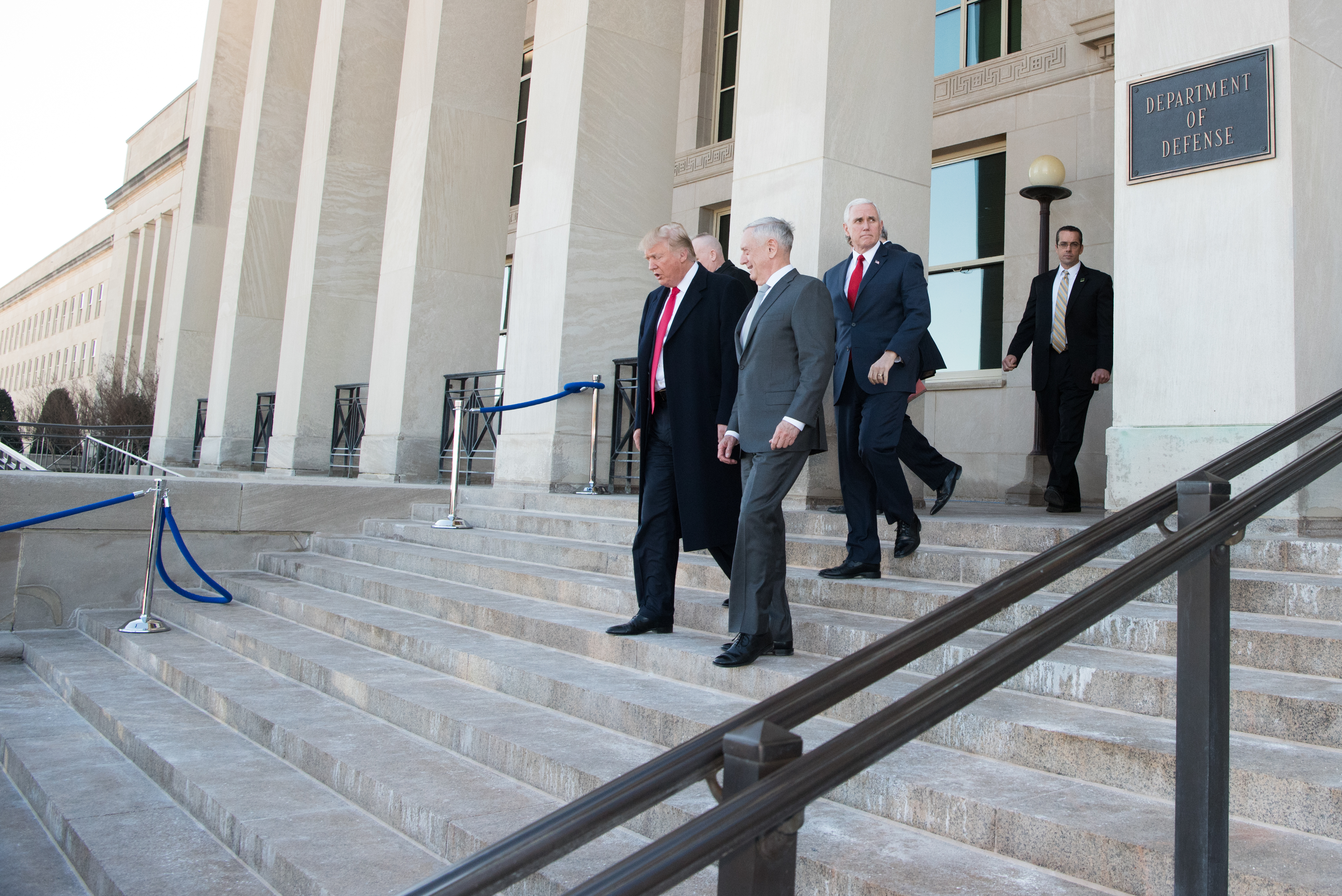
President Donald Trump walks with Defense Secretary Jim Mattis following a meeting at the Pentagon on Jan. 18, 2018. DOD photo by Army Sgt. Amber I. Smith.
The House approved a stopgap spending measure late Thursday evening in an effort to keep the government open past midnight on Friday when the existing continuing resolution expires. The bill would fund the government through Feb. 16, but a similar deal is looking unlikely in the Senate, reported the New York Times.
President Trump on Thursday pointed to the dangers to the US military if Congress fails to reach a budget agreement. The government has been operating under a series of three temporary spending measures since October when the fiscal year began because Congress has not been able to pass a budget. Defense hawks have expressed concern that repeated continuing resolutions are stifling defense efforts, something military leaders continue to echo.
Speaking at the Pentagon Thursday morning, Trump accused Democrats of trying to close the government but said if the government shuts down, “the worst thing is what happens to our military.”
Trump pointed to benefits of his administration’s tax cuts and tax reform, saying he was “sure the Democrats would like to blunt that by shutting down government.”
“But again,” he said, “the group that loses big would be the military. And we’re never letting our military lose at any point. We’re going to fund our military. We’re going to have a military like we’ve never had before because we just about … never needed our military more than now.”
Meanwhile, House Speaker Paul Ryan (R-Wis.) said Thursday the US military is beyond its breaking point and “woefully under equipped,” requiring bipartisan commitment to long-term support in a Washington that is currently focused on melodrama.
During a brief appearance at the Center for Strategic and International Studies, Ryan said there are “good faith” negotiations to make sure budget agreements reflect a commitment to the health of the military. Ryan, who did not take audience questions and hurried back to the Capitol as Congress faces a funding deadline before a possible Friday shutdown, said the US is in the “most complex security environment we have seen since World War II” and the Air Force is the smallest in its nation’s history.
In addition to more stable funding, Congress needs to act to overhaul Pentagon acquisition and innovation, he said.
Meanwhile it was reported that since Republicans are facing an uphill battle to get the 60 votes they need to pass the continuing resolution in the Senate, a shorter-term measure is under discussion.
Sens. Mark Warner and Tim Kaine, both Democrats from Virginia, called for such a measure Thursday. They said in a joint statement ?they opposed the House continuing resolution, which “punts budget discussions until mid-February.” They also called on Congress to stay in session until it comes up with “a long-term bipartisan budget deal that addresses all issues.”
“We will support a short-term CR for a few days to keep the government open while we stay in town and conclude our negotiations. But we do not support perpetuating the current budgetary dysfunction that is hurting our country and our Commonwealth. The Republican leadership has to get serious about finding a budget deal and quit relying on short term patches,” they said. “Recently, Defense Secretary [Jim] Mattis came to the Senate and appealed to us that we not pass another CR but instead do a full budget deal. As Senators who represent the state most connected to the military, we know he is right and know these continued gimmicks hurt our troops in Virginia and across the globe.”